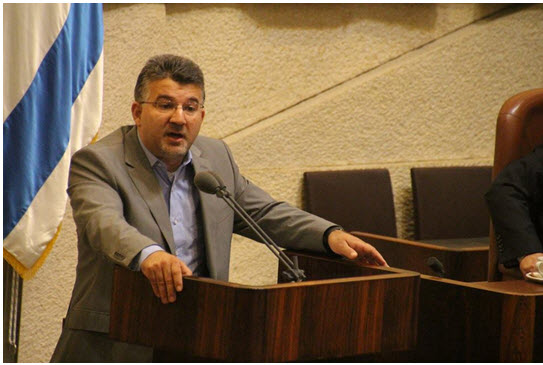Talks which continued between Arab leaders and the Finance Ministry on Sunday, August 30, have yet to reach a breakthrough. Consequently the threatened strike and protests by the Arab sector remain scheduled for later this week, sources close to the talks told The Jerusalem Post.
MK Yousef Jabareen (Hadash – Joint List) said that the government has offered a 200 million shekel increase to this year’s budget to enable the continuous functioning of the Arab municipalities and local councils, but the Arab leadership is asking for a total addition of 600 million shekels. “I recommend that we refuse the offer and stick with the strike,” said Jabareen. “So far, the promised increase in the budget is marginal and does not reflect the socio-economic needs of the community.”
MK Jabareen, who holds a PhD in civil rights law from Georgetown University, said that the current discussions are related to the funding of general development in the Arab sector. “While Arab citizens constitute 20 percent of the population, they receive only a very small percent of the national development budget,” he said. “Today there should actually be an affirmative action program for the Arab local councils to compensate them for past discrimination.”
Jafar Farah, the director of Haifa’s Mossawa Center – The Advocacy Center for Arab Citizens in Israel, said last Thursday that if Finance Minister Moshe Kahlon does not make an acceptable offer by Tuesday, September 1, a general strike in the Arab sector will begin on the next day. As the Knesset is scheduled to be conferring on the budget on Wednesday September 3, if the general strike is indeed called, there will be protests outside the building during the parliamentary session.
Farah told The Jerusalem Post on Sunday that the government’s offer of an additional 200 million shekels for the Arab sector in the proposed budget includes a commitment to continue talks during the next four weeks about a longer 5-year plan.
In its statement from last Thursday, the Mossawa Center noted that the state’s investment in education in the Arab sector remains disproportionately low due to restrictive and discriminatory bureaucratic obstacles imposed by the Israel Lands Authority, with the result that many communities cannot afford to build schools or daycare centers.
Related:



